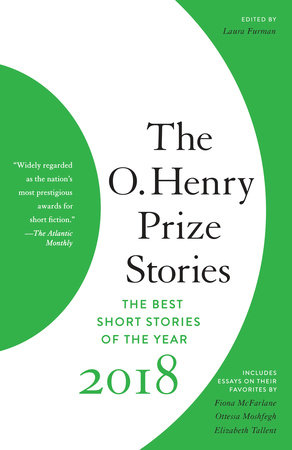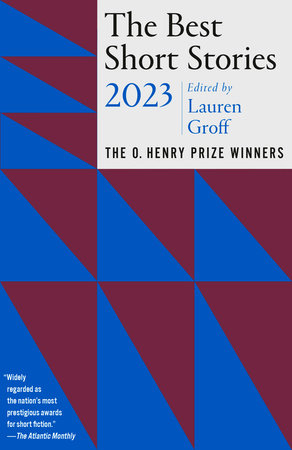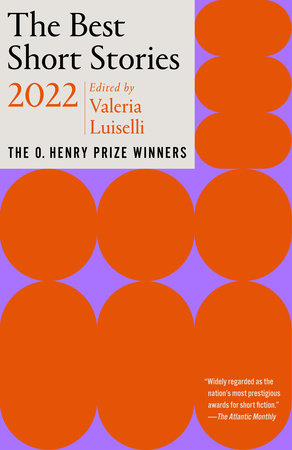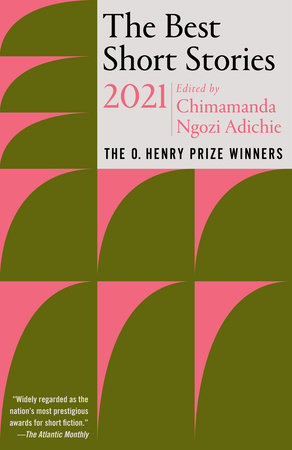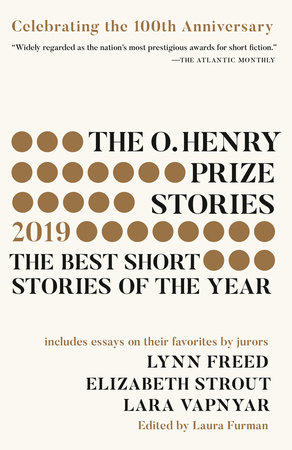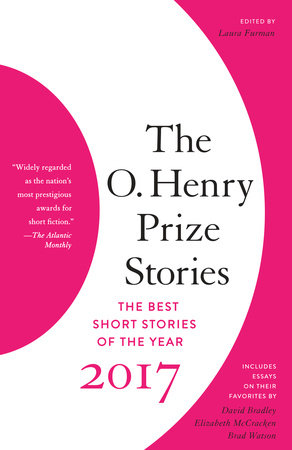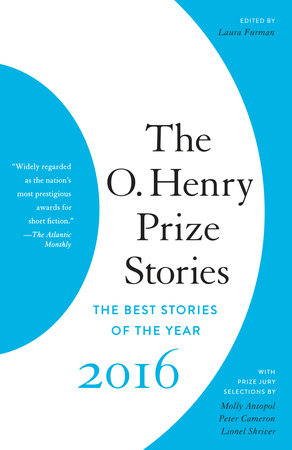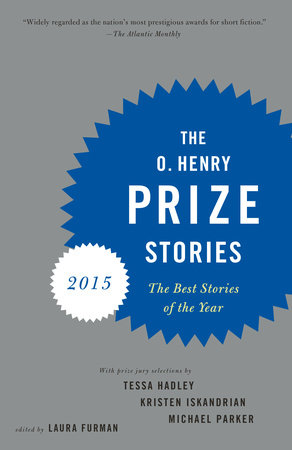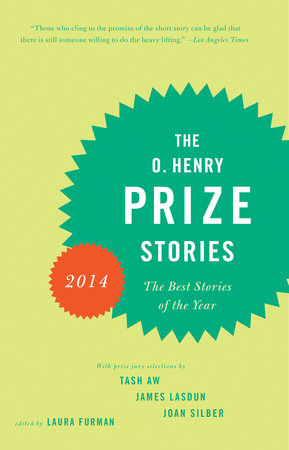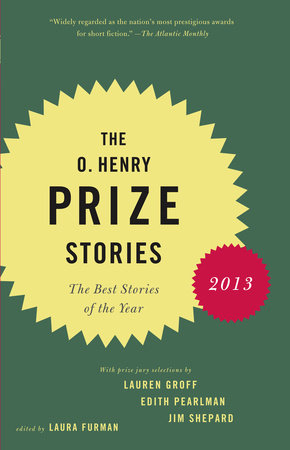Excerpt
The O. Henry Prize Stories 2018
Introduction
The subject matter of the twenty stories in
The O. Henry Prize Stories is so varied that even naming it feels reductive: a violent home invasion, an illiterate writer of letters from the dead, a retrospective homage to a failed marriage, an inconspicuous man in a very small town who bears witness to the great world’s horrors.
It becomes second nature for passionate readers to identify and consider the elements of fiction: plot, language, characters, setting. Subject matter seems like the most obvious one, yet is perhaps the least important in the long run. While an interesting subject might initially attract readers, it won’t keep them there unless the formal elements are in balance.
For the author, subject matter is more complicated. Each element of a story can seem to have its own notion of its importance, so that the writer often feels in control of nothing. Add to this the fact that a writer can start with one idea of what the story is about and end by realizing that it’s about something else entirely. Many authors say that they write to understand their own lives, so that even when a writer thinks she’s creating a unique, completely invented character, she isn’t surprised to recognize someone she knows lurking in the portrait—or even herself.
Nothing matters in the end except the story itself.
After you have completed a story in
The O. Henry Prize Stories 2018, you might find you have two different answers to the questions “What is the subject matter?” and “What is the heart of the story?” And if you turn to “Writing The O. Henry Prize Stories 2018,” you can see what answers the authors themselves have to offer.
Jo Ann Beard’s “The Tomb of Wrestling” is spectacular in the fullest sense of the word: at once a spectacle and an impressive artistic achievement. Jurors Fiona McFarlane and Elizabeth Tallent chose “The Tomb of Wrestling” as their favorite story (pp. 347 and 350).
Here’s a story in which subject matter and plot march with locked arms. A woman is alone in her house. An intruder enters and attacks her. They fight. One wins and one loses. Beard describes their battle in raw and realistic detail. And yet, as in any short story, there’s a story underneath the story, and this understory is immediately hinted at by the second clause of the first sentence: “She struck her attacker in the head with a shovel, a small one that she normally kept in the trunk of her car for moving things off the highway.” Surely every reader wants to say, Who cares how big the shovel is or why she keeps it in her trunk? Get on with the fight. The first clause is so strong that the reader wants to know what happens next, which is one definition of plot.
But we care about the shovel at least in part because the story is also about the particulars of the antagonists. We learn their names and stories, what each of them cares about, and how they came to be in the house at the same moment. We also learn where their minds are wandering, through passages that step away from the physical struggle. The mind never stops wandering, not even when the body is fighting for survival. Beard catches perfectly each character’s strong will to live. By the story’s end, the reader is fascinated as much by their mental ramblings as by the specifics of the struggle, and in this way “The Tomb of Wrestling” resembles what we call real life.
Marjorie Celona’s “Counterblast,” chosen by 2018 juror Ottessa Moshfegh as her favorite story (p. 348), is funny, wry, sad, and full of energy. The narrator tells about the failure of her marriage and what she was like as the mother of an infant. The action centers on the death of her father-in-law and her interactions with her husband and his sister. The most intimate relationship is between mother and baby. While many mothers can anticipate their baby’s desire for food, a change of diaper, or sleep, our narrator is so attached that she feels little else but her yearning to be with her child. Adults make little sense to her; they’re annoying and their motivations impossible to discern. She’s set apart from her peers because of her desires, her unnamed and inchoate feelings that are the understory beneath the comedy of child care, in-laws, and her recurrent annoyance with her handsome husband, for whom life seems to be very easy. The last line of “Counterblast” is at first a puzzlement and then a revelation.
“Nayla” by Youmna Chlala begins with a place: “There was sun and then there was more sun and more sun. You can’t imagine loss when it’s sunny. . . . I was still in this camp in the desert, worming my way into acceptance while years—let’s count them . . . something like 365 × 6 + however many days—had gone by.” The word acceptance has two meanings here: acceptance into another country, which every refugee needs, and acceptance by another person, which every person desires.
At a party, the narrator meets Nayla, her cousin Marwan’s girlfriend, an ambiguous figure because she is a widow, and they become friends.
That summer, I practically lived in her apartment, a tiny place right above her late husband’s family’s house. I’d come over and we’d drink prosecco (pretending we were in Italy) and invent recipes together. We traded food for the bubbly wine with Ahmad, the liquor store manager. We made him fish fattoush; lamb-stuffed eggplant; pistachio, orange, and cardamom cookies; and vegetarian kibbeh with extra pine nuts.
Lucky Ahmad! Slowly the two young women come to trust each other, to share their losses and to confide what it is to be a survivor. The richness of their friendship in what is essentially a prison is perfectly conveyed by Chlala’s gifted prose.
“Lucky Dragon” by Viet Dinh also begins with the sun, though this is a sun that betokens devastation: “The second dawn rose in the east, at nine in the morning.” In the nonchalance of this first sentence, Dinh warns his reader that something is terribly wrong. The order of things is disturbed. The second dawn is no dawn at all but a nuclear explosion, a test by the Americans.
One member of the Lucky Dragon crew dies quickly and is buried at sea. The rest don’t merely sicken and die; they first suffer horribly, including the ship’s captain, Hiroshi, and his friend Yoshi. Some of the crew previously survived the Tokyo firebombings, others the battles in the Pacific. Hiroshi and Yoshi were together as soldiers in the Philippines and as prisoners of war. Together they transform into unrecognizable creatures as their skin scales and hardens. Dinh portrays not only their physical suffering but what their nation makes of them: first as victims, next heroes, finally as monsters. Their treatment makes a mockery of politics, nationalism, and military pride. In the end, Hiroshi and Yoshi have only death, the sea, and each other.
Michael Parker’s “Stop ’n’ Go” is a two-paragraph story whose emotional depth is masked by the banality of the main character. He is stoical, much attached to his habits, clothing, and schedules. His children have gone away. He no longer farms but still surveys his fields, now rented out to a company from out of state. We see his wife in her housecoat “wordlessly” making his customary breakfast. Nothing in the present quite makes sense to him. “Maybe I have outlived time,” he thinks.
So far, so good. Maybe the reader thinks that, aside from Parker’s elegant prose, this story about a grumpy old guy has nothing to reveal. Then, in the middle of the paragraph, everything changes. The old farmer’s world seemed entirely local, but the reader learns that it’s larger and more awful than it appears to be. With the words “In the war,” we’re taken back to his youth, back to war in another country, to being wounded, to a moment of unexpected desire, to seeing the worst that one human being can do to another, and then to seeing people whose ways are, to him, even more incomprehensible, more foreign and haunting.
Dounia Choukri’s “Past Perfect Continuous” is another meditation on war and memory but it’s also a disquisition on time, as the title indicates. Here are war, time, and memory—her family’s past and her present—considered by a young German woman. She comes from stolid women, “married to reasonable men with ice-blue eyes, men who only traveled in wartime.” Her family is bent on forgetting and denying their country’s (and their own) recent past. They yearn for the better days of a whitewashed past, whether embodied by Gene Kelly’s dancing or recollections of past winters, which “aren’t what they used to be!” The narrator, stranded in her adolescence, observes that “there’s a particular loneliness to sitting down at a table others have already eaten at, flicking at hard crumbs and tracing the rings of cleared glasses with your finger.” And then Aunt Gunhild, the narrator’s Nazi great-aunt, makes a visit, much to the family’s chagrin. She is “a smoker in a family in which women . . . didn’t smoke,” and a living ghost from the past, a living answer to the narrator’s question, “But what about the Second World War, huh?” The visit of her transgressive relative is inspiring to the narrator, an awkward thirteen-year-old, who’s unprepared for what the future seems to offer—“breasts, bras, boys.” In the atmosphere of her family’s nostalgia for a past that never existed, she tells the reader, “Part of me wished for a past without the need to fill in the present.”
Aunt Gunhild has lost the right to be nostalgic for her past. Through her visit, the narrator learns that time can be a false analgesic and that it’s hard to learn time’s lessons: “When the past sucks it just becomes a welcome lesson on how not to do things.” “Past Perfect Continuous” isn’t only a story about German history, it’s also a tracing of a young girl’s growth toward independence and a liberation as glorious and complicated as the fall of the Berlin Wall.
Thomas Bolt’s “Inversion of Marcia” is also narrated by a young girl. Mary’s on a family vacation with her parents; her older sister, Marcia; and the gorgeous and seductive Alicia, who is helping out “in exchange for a free trip to Italy.”
Not surprisingly, complications ensue. The parents withdraw into their own problems, reappearing periodically to drive the girls to Naples and other sights. A painful triangulation develops as Mary observes her sister’s increasingly sexual involvement with Alicia. Alicia’s wardrobe and makeup, the attitudes she strikes, the cigarettes she smokes, all seem perfect and perfectly annoying to our shrewd narrator. Mary knows that she’s about to lose childhood’s freedom to the questionable joys of adolescence. She watches Alicia and Marcia like a disapproving hawk, hovering and waiting to be included.
Thomas Bolt’s generous story is told with a bit of a novel’s discursiveness but he maintains the story’s tight focus on Mary’s quiet maturing and how she comes to understand something of the adult life she will soon undertake. She’s torn between copying Alicia’s ways and detesting them; between hating and loving her sister as Marcia moves through her first love affair; between thinking of her parents as distant monoliths and seeing their adult troubles as real and perhaps even forgivable.
Marwand, the Afghan-American narrator of Jamil Jan Kochai’s “Nights in Logar,” is on an expedition to find the fierce and unfriendly family dog, Budabash, who’s somehow gotten free. It’s a hot day and the mission is a welcome distraction but also dangerous, even in the current lull or temporary “coma” in the American war.
Marwand is in the company of Gul and Dawoud, his almost-peer uncles, and his cousin Zia; the boys range in age from twelve to fourteen. Unlike Marwand, who’s there on a visit from his home in America to his mother’s family village, Gul is wise in the ways of Logar and declares that only four of them can go looking for the dog. Marwand’s younger brother cannot be invited along. “ ‘More than four,’ he told me and Zia and Dawoud as we sat between the chicken coop and the kamoot, ‘and we’ll look like a mob, but any less and we might get jumped or robbed.’ ”
Part of the reader’s entertainment in Kochai’s lively story is the mix of American slang with Pakhto, a duality that highlights Marwand’s double existence. (On losing a bid to include his brother, here is his response: “ ‘Well, fuck,’ I muttered, in English, and relented to the will of the jirga.”) Marwand has two nationalities, two homes, two identities, and is at times comfortable with neither.
Even the missing dog is part of a duality. On first arriving, Marwand rushed to him, mistaking him for a favorite dog from years before. Budabash bites off the tip of Marwand’s finger, proving that he is not the Mr. Kareem of old, not an American dog to be “hugged and petted and neutered” but “a mutant,” perhaps like Marwand, neither one thing nor the other.
The four hunters see many things, and before long a numbered list of what Marwand sees reaches number twenty-one. They wend through graveyards and among slaughtered sheep, under mulberry trees and out in the open, over land possibly mined; they hunt until it is dark, darker than it ever is in the streets of Marwand’s America. Whatever America means to Marwand, with its safety and its grand promises for his future, it remains hard for him to measure it against Logar, where there’s a prayer and a story and an obligation to structure the days and nights, and the familiarity of his family village.
The life of Trent, the twelve-year-old narrator of “How We Eat” by Mark Jude Poirier, is in its way as dangerous as Marwand’s is in an Afghan village. Trent lives with his ten-year-old sister, Lizzie, and their mother, who insists they call her “Brenda” or “Bren.” She’s a self-righteous, crazy woman with a hair-trigger temper, who wins arguments with her children by shifting ground. She routinely blames them for her every trouble. Brenda has trained Trent and Lizzie to find money for her, and when they do, she buys a small quantity of fast food for them to share unequally.
Trent tries to take care of Lizzie, who is still innocent enough to disobey Brenda. His love for Lizzie and his attempts to care for her lead Trent into trouble with Brenda but also gain him a painful chance to escape.
In Lara Vapnyar’s funny and moving “Deaf and Blind,” the narrator views love, sex, and adult communication through the eyes of herself as a child.
Her mother’s dear friend Olga visits Moscow as often as she can. The two women met when they were both undergoing treatment for infertility, which worked for the narrator’s mother but not for Olga. Olga’s husband, whom she doesn’t love, remains crazy about her. The narrator’s father leaves her mother, marries again, and becomes possessed by a new baby, neglecting the narrator. The situation is static until Olga falls in love with Sasha, a deaf and blind philosopher, who becomes an object of fascination for the narrator. She’s learning about love in its eccentric and inconvenient possibilities, for, as her grandmother offers, “ ‘We don’t choose who we love.’ ”
Stacey, the narrator of Jenny Zhang’s “Why Were They Throwing Bricks?,” is having problems with a different kind of love. For Stacey, and then for her younger brother, being loved by their grandmother is like being the object of a boa constrictor’s affection. Their grandmother is used to getting her way and never gives up. Mixed with the story of Stacey’s distancing of herself from her grandmother and her Chinese identity as she grows up in America is the story of her grandmother’s own suffering. Unfortunately, that very real suffering doesn’t make her grandmother any easier to love, though it makes Stacey—and her story—more nuanced and complex. The story’s title evokes the grandmother’s will and willfulness, and her separation from her surroundings. Wherever she is, she’s an offended stranger. Stacey sums up the final dramatic scene of “Why Were They Throwing Bricks?” with characteristic bluntness: “you go on with your life, and you learn nothing, and you don’t change at all.”
Lauren Alwan’s “An Amount of Discretion” is also ostensibly about delicate family relations. Aside from tension between Seline and her late husband’s son, Finn, a college student, there’s another fragile relationship at stake, between Seline and Jonathan, her dead husband.
Jonathan was an artist and teacher. He left a simple and clear will, in which he left all of his work to the school where he taught for fifty years. Seline is executor of his estate. She’s also an artist and a careful, precise woman. She has no children of her own and while she isn’t close to her stepson, she feels a duty toward him and a latent affection. “She’d never had much of a maternal temperament, yet on those weekend visitations and the annual two weeks each summer, she’d found surprising pleasure in the Lego building and story reading and the cooking of macaroni and cheese.”
The story opens as she’s preparing her house in Los Angeles, the perfect lunch, and herself in the right dress and jewelry for a visit from Finn, his girlfriend Anna, and Anna’s four-year-old daughter, Chloe. In the light of his father’s death, Seline is no longer obligated to be kind and welcoming to Finn. She might, though, want to continue a friendship with him. Along these lines, she decides to give Finn the eight notebooks Jonathan used to record in words and drawings places, wildlife, andinteresting botanical finds. The notebooks are full of exquisite drawings and quite valuable. Jonathan’s will made no provisionfor such a gift, but as executor Seline is making the inventory and decides she can do what she wants with the notebooks .She feels an uncharacteristic desire to make up to Finn for pastlosses. It’s also possible that she wants to bribe him into staying in touch with her. The notebooks would be an extraordinary gift of beauty as well as a moving reminder of his father.The astute reader of the short story will know that Seline is creating a world of trouble for herself. Alwan’s exact andthoughtful prose provides the perfect background for the surprising fireworks that the visit causes in Seline’s quiet and careful life. Perhaps they’re the right fireworks to launch her into widowhood.
Among the lessons life insists on teaching us over and over again is that everything dies. Thinking about our own mortality is bad enough, but there are losses that are worse. “Queen Elizabeth” by Brad Felver tells the story of a couple, Gus and Ruth, who love each other despite what seems to the reader to be a mismatch. In education and ambition, they are unequally yoked.
He grew up on his father’s farm. She’s from an upper-middle-class family in Boston and is afraid to pet a chicken. He’s a carpenter who makes furniture by hand, lovingly carving and fitting together beautiful pieces of wood into useful objects that sell as works of art. Ruth is something else entirely—amathematician. She studies stochastic—fittingly meaning “random”—processes, and she lives with an affinity to “probability theory, random variables, and chaotic systems.” They marry and have a child, Annabelle, and the three live on the farm he inherits from his father. Though Annabelle is much loved, Ruth thinks about herself: “Here she was: a mother, but was she anything else? Anything at all?” She’s restless and he’s content. She wants more but doesn’t quite know how to get it without destroying their marriage. Then fate intervenes.
In the end, Gus and Ruth share a sorrow that’s more dear and essential to each of them than their differences. Brad Felver’s story is as lovingly crafted as the furniture Gus makes, and Felver leaves the reader with a haunting and bittersweet truth.
In “The Stamp Collector” by Dave King, the narrator wins “a small pot in the Massachusetts lottery.” He and Louis, early in their affair, go to Europe, and “between Louis and the sudden wealth, [he] believed life had changed.” Here’s a short story that pulls its reader through with an easy, confidential narrative tone. We’re immediate friends with the narrator. We want to know what happens next. Can money and love really change life?
By the end of the third paragraph, we spot signs of trouble on the horizon: Louis’s formidable mom, the program Louis gets the narrator into, “all the bad years” to which the narrator refers as if we know all about bad years. We want to know what the money did to the narrator’s life and how long the affair with Louis (and the money) lasted. We want to know to whom Louis was mailing sheets of stamps from all over Europe. We want to see more of Louis’s mother, with her black belts in façade and condescension.
In a short story, the writer has to do it all right away—establish the tone, ensnare the reader, and make us want more. Dave King does all three just right in “The Stamp Collector.”
“More or Less Like a Man” by Michael Powers is a gentle story filled with violence, a story about a brief meeting between two people who have no luck in love. One is a middle-ged Slovenian woman who’s fallen in love with the exact wrong man. She’s an immigrant and so is he. Together, they’re not just learning English but shaking it to see its roots. The consequences of her affair are unbearably painful.
She’s on a plane to San Francisco in the middle seat between a man who is sleeping at the window and our narrator on the aisle. She remarks that she’s fleeing. The narrator responds in a completely understandable way: “Okay, I thought, here we go.”
But if anyone could use some conversation, it’s our narrator.
Often in fiction, the writer chooses to provide a character’s background information to the reader in one chunk of prose and then go on with the action. Michael Powers makes a different choice. Until the last paragraph, the only things we know about the narrator are that he dislikes talking to strangers on airplanes and that he’s been to New Jersey. In the last paragraphs, the story blooms and the narrator reveals himself while returning us to the beginning, which we see in a new way.
Cassandra seems to be flirting with HM, hero of Jo Lloyd’s “The Earth, Thy Great Exchequer, Ready Lies,” nibbling his fingers and blowing nose kisses into his palm. She is a well-named horse, and when she turns to look around, HM knows that she is out to get his attention and keep it. Aside from his horse, HM is accompanied by the gloomy Shiers, “HM’s most trusted employee yet tedious companion,” and by Tall John, an all-around reprobate who considers himself “a second Adam, more free than a freeborn gentleman.”
The title of Jo Lloyd’s story comes from Thomas Yalden’s poem “To Sir Humphrey Mackworth”; Mackworth was a politician and industrialist in the seventeenth and eighteenth centuries. It’s difficult not to identify our hero HM with Sir Humphrey, whose later life was besmirched by a scandal but who lived to the then-ripe age of seventy. Historical accuracy doesn’t really matter, though. The pleasure of Lloyd’s story, aside from her successful imagining, is her use of language as she constructs both narrative and dialogue in a convincing idiom. She dances us through the tale of HM, “founding director and deputy governor of the Company of Mine Adventurers,” as he attempts to verify for the company Tall John’s claim that he’s found “a seam of finest ore, right on the surface, fat and firm as floorboards.”
Is Tall John’s story too good to be true? Is it a test of HM’s temperament and judgment? A trap? Knavery on the part of HM’s enemies? Cassandra thinks so.
“The Earth, Thy Great Exchequer, Ready Lies” also delves into the ever-present British question of class. HM has the unfortunate habits of feeling sorry for himself and comparing himself to others. He wishes to be praised more than he is and wants to be recognized as financially successful and also charitable to the poor, a good provider, industrious, and in possession of “excellent judgment.” He has what seems like plenty, yet he’s self-conscious, touchy, and defensive.
At its end, the story opens up with a hymn that looks ahead to England after the industrial revolution when it’s been turned by men like HM from the rich, dense fields and forests through which he rides into a dark place where “the stars, the planets, the moon herself are dimmed by the glitter of furnaces.”
Tristan Hughes’s “Up Here” is set in the contemporary countryside, where the narrator lives with his girlfriend, a naturalist in “a park that surrounded” them. She’s made the decision that her dog, old and in pain, needs to be killed. “Her body was slowing, her insides were failing, her bones were going: she had to be careful about each move she made.” The narrator, though he’s never before done such a thing, volunteers to kill the dog himself. To pile on another difficulty, he likes the dog, old and sick as she is. He makes his promise partly because he’s drunk and partly because “up here, it was the kind of thing you did for your lover. In other places, you might be expected to do other things.”
He’s in thrall to his girlfriend and the place where they live. “I watched my girlfriend dive and swim. The elegant arch of her back, the easy grace of her swimming strokes—how beautiful and unencumbered she appeared, uplifted by the light and water. How lucky we were to live on a lake like this! How golden our lives seemed, lived so far away from anywhere!”
He’s both lucky and unlucky, too tentative to call the place his own or to relax his nervous eagerness to please his lover. He soon discovers that nature doesn’t care what he feels or does, another aspect of living in a beautiful wilderness. “Up Here” is a pastoral of sorts, a love story told in full awareness of how often failure greets those who solve their problems by moving to a paradise.
Brenda Walker’s “The Houses That Are Left Behind” is also, at least in part, about place.
It’s a Sunday afternoon. The narrator’s cooking for her husband’s children, who come weekly for a meal and a visit. Her husband’s reading in the sun. Is this another paradise? Perhaps. But then the bell rings and a young woman, weeping, tells them a ridiculous story. She gets them wondering—did she want to get into their apartment building? If so, why?
Walker’s story is about places that used to mean something, and about the consistency of uncertainty. Once there was a lovely, new home but, no, it was a house about to burn. There was a kind and helpful neighbor, someone else’s husband, a lawyer on vacation, but, no, he was a stalker. Now there’s a new place, a new home for the narrator and her husband, yet it’s also a place where strangers meet for secret assignations—until the lock is changed, and then what becomes of them?
In deliberate and evocative prose that never asks to be admired but is, Brenda Walker relates the narrator’s several lives and pasts before she arrived at the apartment where on a Sunday afternoon she’s cooking for her husband’s children. Those lives are one story, she’s saying. The other story is the secret one that houses live without us.
Stephanie A. Vega’s story “We Keep Them Anyway” is about another kind of mystery, the universal desire to hear from the dead and missing. Ña Meli arrives out of nowhere, almost uneducated, “poor among the beggars,” perhaps a mystic, perhaps a charlatan. The neighborhood of La Chacarita is a collection of shanties made of “cardboard boxes and corrugated metal. . . . It clung to the lip of the river—muddy, smelly, filled with mosquitoes—like a howling, injured beast.” Ña Meli offers the residents of La Chacarita an occasion for skepticism or hope. Her gift, or trick, is to write letters in a clear handwriting unlike her normal scrawl, using words she doesn’t know, sometimes even in a language she doesn’t know. The letters are dictated to her by those she calls her visitors.
Ña Meli lives down a dirt path from the narrator and offers him a message from his missing brother, “a small-time agitator.” He passes up the opportunity, figuring that for Ña Meli’s fee he could get a Coca-Cola or even an empanada.
Eventually, naturally, he succumbs to temptation. Little by little, he and Ña Meli become friends and stay close until she joins her visitors in death. Ña Meli is faithful to those dictating visitors but also feels an obligation to the living recipients, so she sometimes writes, “ ‘Burn this. Do not keep it,’ ” on the letters. “As Ña Meli wrote the letter for me I thought, What good does it do me to know it was muddy after the rain and he slipped?” The narrator warns her not to write dangerous letters and she replies, “ ‘Imbécil! It’s not me. They visit me.’ ” One of the hazards of their lives is the political regime they live under, and Ña Meli is on the losing side.
There’s no forced magical realism in “We Keep Them Anyway,” rather there’s the plentiful magic of reality. There might be no use, as the narrator argues, in knowing how someone you love died of torture, yet Ña Meli’s visitors dictate the exact details and those left behind do want to know them. How deeply people love and miss the ones who’ve gone into death or the unknown—these everyday mysteries are the magical components in La Chacarita.
Throughout “Solstice,” Anne Enright uses aspects of that twice-yearly occasion: darkness and light, beginning and end, that which we notice and that which we overlook, what we share and what we keep selfishly to ourselves, the intimacy and loneliness of family life.
“It was the year’s turning,” Enright begins. “These few hours like the blink of a great eye—just enough light to check that the world is still there, before shutting back down.”
Ross makes his slow way home through sticky Dublin traffic. He meant to leave work early but didn’t. The darkness of the longest night of the year catches him by surprise. Then he can’t find his car in the office garage. “It felt like the end of things. Made you want your religion back.” A muted feeling of wanting something back—religion, family, marriage, any source of lightness—suffuses the story.
Evening is no one’s best time in this family. Ruth, the daughter of the house, is on her phone and won’t get off it. Dinner’s on the way, absorbing Ross’s wife’s attention. His ten-year-old son’s contribution to their dinner conversation, which is about the death of their cat’s mother—(“Animals believe in death”)—annoys Ross and this provokes his wife. She’s already annoyed with him: “His wife with a look that says, Christmas is coming and it is all your fault.”
It takes the morning sun’s delayed entrance to unite at least part of the family. Father and son greet the new light in a united silence: “Nothing happened, but they know it was there. The tiny stretch of daylight that will become summer.”
—Laura Furman
Austin, Texas


